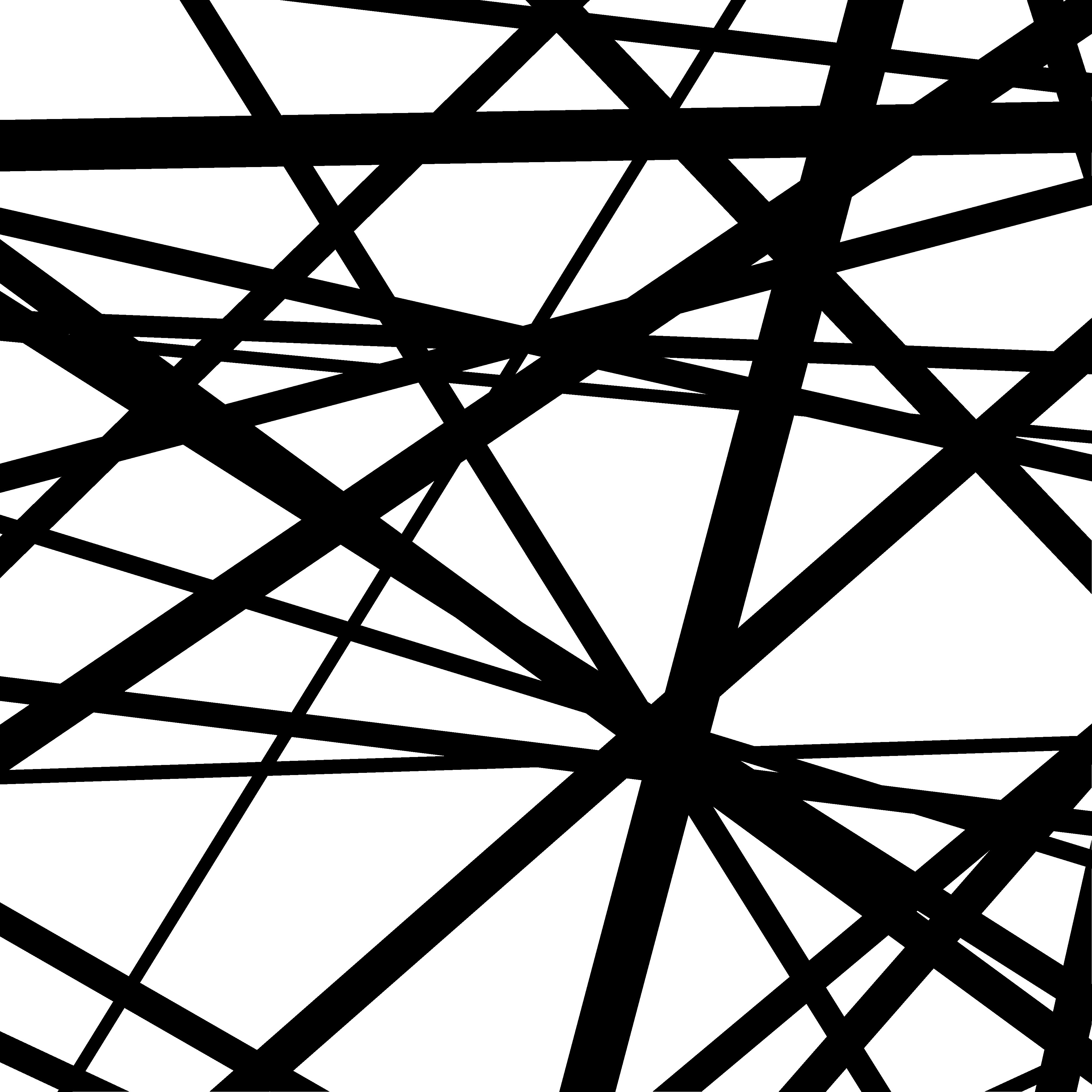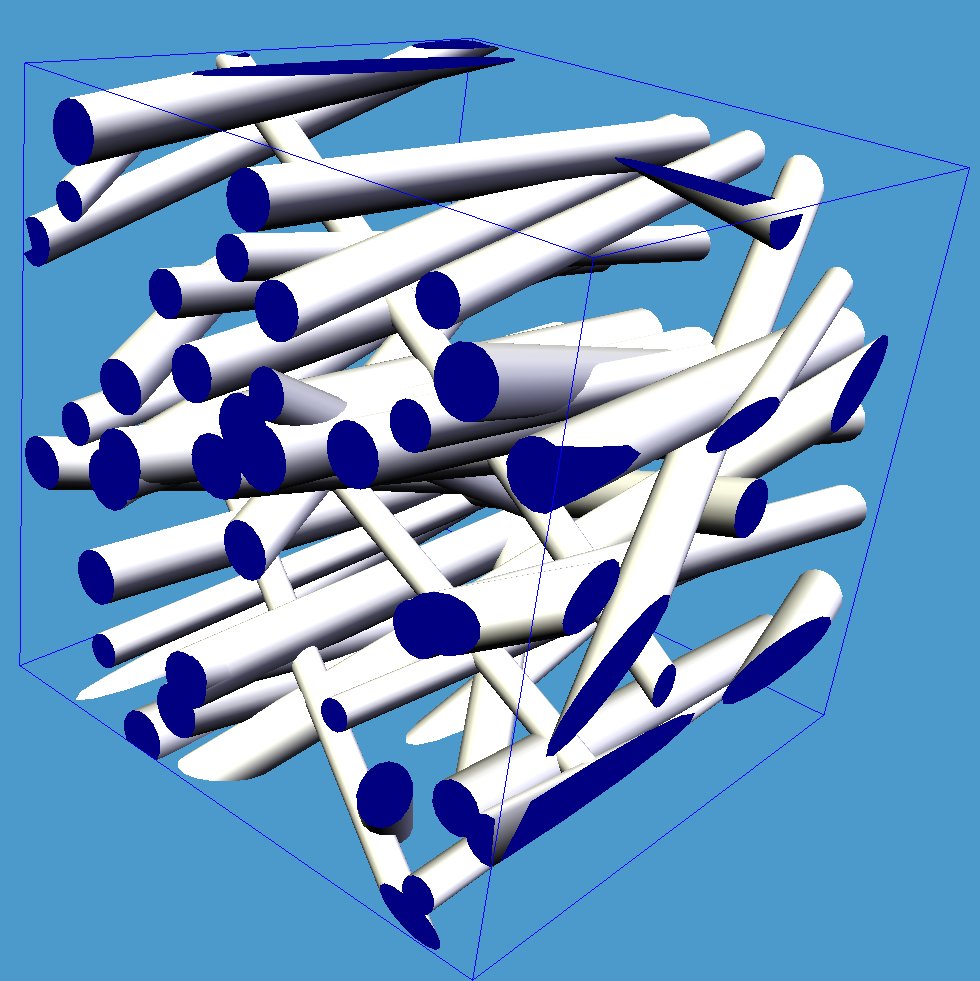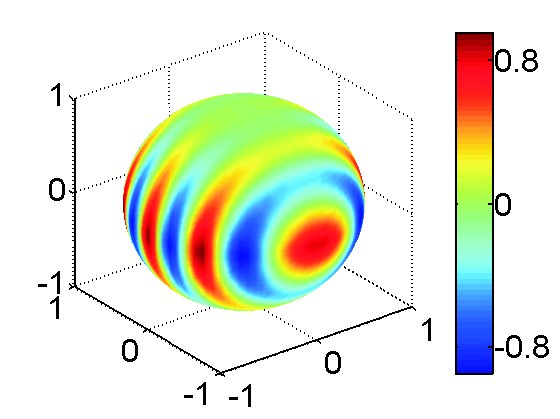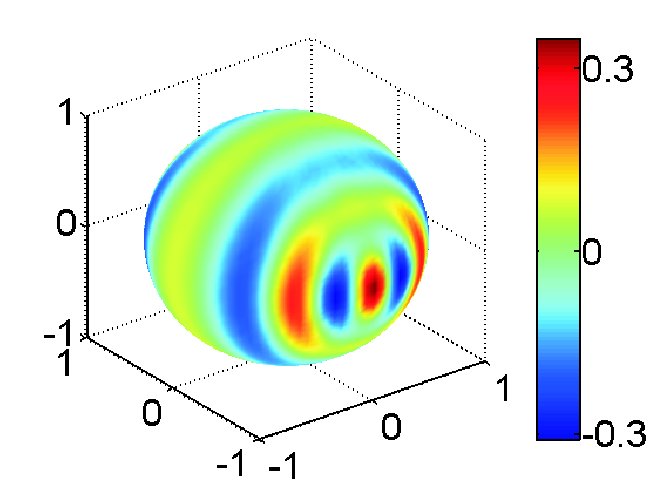Determination of the directional distribution of fiber processes with numerical inversion of integral transforms
Many materials can be modeled with spatial fiber processes, e.g. the gas diffusion layer of the fuel cell (see fuel cell project). For the analysis of the properties of such a material it is crucial to know the directional distribution of the fibers.
The aim of this project is to develop numerically stable methods for the reconstruction of the directional distribution of a fiber process by analyzing the intersections of the material with planes. The expected number of intersection points of the fibers and the planes is a cosinus transform of the directional distribution, thus the numercial inversion of the cosinus transform is a main goal of this project. The latter transform is closely related to the spherical Radon transform. Further goals are the analysis of the stochastic properties of the estimators of the directional distribution for different directional distributions and with noise.
The research project is supported by the DFG. It is a cooperation with Prof. Louis and Martin Riplinger of the Institute of Applied Mathematics of the Saarland University.
Contact persons: Prof. Spodarev and Malte Spiess





